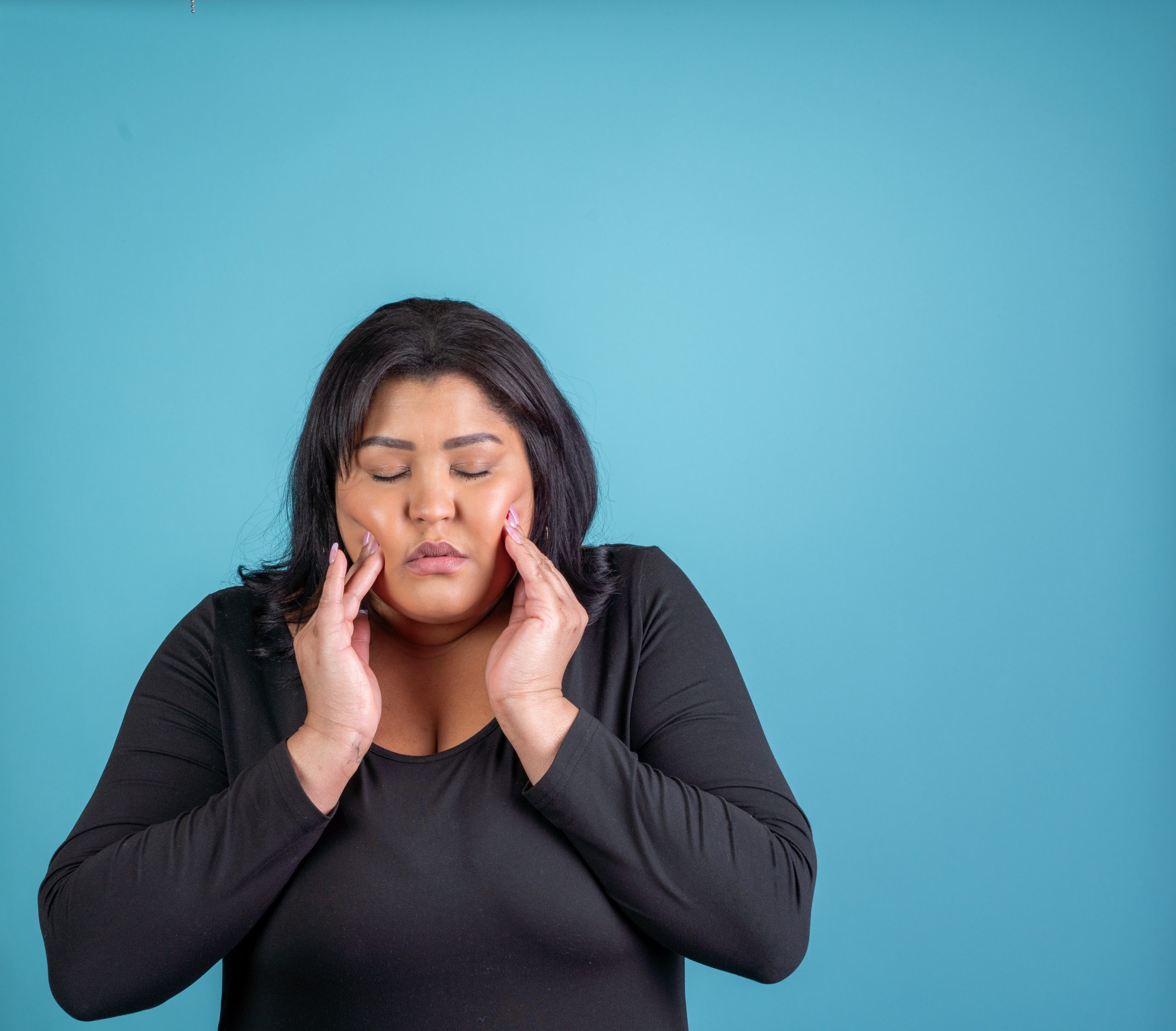Understanding TMJ: Symptoms, Causes and Treatment
Temporomandibular Joint Disorder (TMJ) – it’s a mouthful to say, but it can cause a whole lot of discomfort. This condition affects the joint connecting your jawbone to your skull, essential for everyday actions like chewing, talking, and even yawning. When TMJ disorders strike, they can seriously disrupt your life. So let’s dive into what TMJ is, its symptoms, causes, and how treatments like Botox can help.
What is TMJ?
TMJ stands for the temporomandibular joint, but it’s also commonly used to refer to a range of disorders impacting this joint. It functions like a hinge, enabling your jaw’s up-and-down and side-to-side movements. It’s a complex system involving muscles, ligaments, and cartilage. When any part of this system malfunctions, it can trigger pain and problems with jaw function.
Common Symptoms of TMJ Disorders
TMJ disorders can manifest in various ways, and the severity can differ from person to person. Keep an eye out for these common signs:
- Jaw Pain: This can be a sharp or dull ache in the jaw joint itself or the surrounding muscles.
- Clicking or Popping Sounds: You might notice these noises when you open or close your mouth.
- Jaw Locking: Your jaw might feel stuck, making it difficult to fully open or close your mouth.
- Headaches: Frequent headaches, especially in the temples, are a common TMJ symptom.
- Facial Pain: You may experience discomfort in your face or around your ears.
- Earaches: TMJ pain can sometimes mimic an ear infection.
- Tinnitus: Some people experience ringing or buzzing in their ears.
- Chewing Challenges: Eating can become uncomfortable or difficult due to jaw pain or dysfunction.
Causes of TMJ Disorders
TMJ disorders can stem from various factors, and often, it’s a combination of causes:
- Jaw Injury: Trauma to the jaw can damage the joint or surrounding structures.
- Teeth Grinding (Bruxism): Grinding or clenching your teeth, often unconsciously during sleep, puts excessive stress on the TMJ.
- Arthritis: Osteoarthritis or rheumatoid arthritis can affect the TMJ, causing inflammation and pain.
- Misalignment: Problems with the alignment of your teeth or bite can put undue strain on the TMJ.
- Stress: Emotional stress can lead to muscle tension in the jaw, worsening TMJ symptoms.
- Muscle Disorders: Issues with the muscles controlling jaw movement can also contribute to TMJ pain.
When to See a Dentist in Cairns for TMJ
If you’re experiencing persistent jaw pain, clicking or popping, or difficulty moving your jaw, it’s crucial to consult a Cairns dentist specializing in TMJ disorders. Early diagnosis and treatment are essential to prevent the condition from worsening and find effective relief.
Dentists play a vital role in diagnosing, treating, and managing TMJ disorders. Their expertise helps identify the root causes of your symptoms and create a personalized plan to improve your quality of life. If you suspect you have TMJ,don’t hesitate to schedule an appointment with your Cairns dentist to discuss your treatment options and start your journey towards a pain-free jaw.
Treatment Options for TMJ Disorders
TMJ treatment varies depending on the severity of your symptoms and the underlying cause. Options can include:
- Self-Care: Simple measures like applying heat or cold packs, eating soft foods, and practicing jaw exercises can often ease symptoms.
- Medications: Over-the-counter pain relievers and anti-inflammatory drugs can help manage pain and swelling.In some cases, muscle relaxants or anti-anxiety medications might be prescribed.
- Dental Appliances: Custom-made mouthguards or splints can help reduce teeth grinding and alleviate pressure on the TMJ.
- Physical Therapy: Specific exercises and techniques can strengthen and stretch jaw muscles, improving function and reducing pain.
- Dental Corrections: If misalignment is contributing to your TMJ, dental treatments or orthodontic work might be recommended.
- Stress Management: Relaxation techniques, stress management strategies, and therapy can help reduce symptoms linked to stress and muscle tension.
- Surgical Interventions: In severe cases where other treatments haven’t provided relief, surgical options might be considered, ranging from minimally invasive arthroscopy to more complex procedures.
How Botox Can Help with TMJ Disorders
Botox, often associated with cosmetic treatments, has also shown effectiveness in managing TMJ disorders.
Understanding TMJ and Botox
TMJ disorders involve pain and dysfunction in the temporomandibular joint. Common symptoms include jaw pain, headaches, and difficulty chewing. These issues can arise from various factors like teeth grinding (bruxism), jaw misalignment, or muscle tension.
Botox (botulinum toxin) is a neurotoxin that, when injected in small, controlled doses, temporarily relaxes or weakens specific muscles. This mechanism can be very helpful in treating TMJ disorders where muscle tension or overactivity is a major contributor.
How Botox Works for TMJ
- Targeting Overactive Muscles: Botox is injected into the muscles responsible for jaw movement, particularly the masseter and temporalis muscles, which are often overactive or strained due to grinding or clenching, leading to pain and dysfunction.
- Reducing Muscle Tension: Botox temporarily relaxes these muscles by blocking the nerve signals that cause muscle contractions. This can reduce muscle spasms and alleviate TMJ-related pain.
- Decreasing Teeth Grinding: For those who grind their teeth, Botox can weaken the muscles involved in bruxism, reducing muscle activity and minimizing damage to teeth and TMJ symptoms.
Benefits of Botox for TMJ
- Pain Relief: Many patients experience significant relief from TMJ pain after Botox injections, as the toxin reduces muscle tension and inflammation.
- Improved Function: By relaxing the muscles around the TMJ, Botox can enhance jaw movement and function, making everyday activities easier.
- Reduced Headaches: TMJ disorders often trigger tension headaches. Botox can help alleviate these by addressing the underlying muscle tension.
- Non-Surgical Approach: Botox offers a non-invasive alternative to surgery, making it appealing for those seeking less invasive treatment options.
Procedure and Aftercare
- Consultation: You’ll have a consultation with a qualified healthcare professional to assess your symptoms and determine if Botox is right for you.
- Injection: Botox is administered through a series of small injections into the muscles around the TMJ. The procedure is typically quick, taking less than 30 minutes.
- Post-Treatment Care: You might experience mild discomfort or bruising at the injection sites, but most people can resume their normal activities immediately. Avoid massaging or rubbing the treated areas, and follow your healthcare provider’s aftercare instructions.
Results and Duration
- Onset of Results: Botox typically starts working within a few days to a week, with maximum benefits noticeable within two weeks.
- Duration: The effects of Botox generally last for 3 to 6 months. Follow-up treatments may be needed to maintain the benefits.
Considerations and Side Effects
- Side Effects: Common side effects include bruising, swelling, or mild pain at the injection site. Rarely, patients might experience temporary weakness in the treated muscles.
- Not a Cure-All: While Botox can provide significant relief, it’s not a cure for TMJ disorders. It’s often used in combination with other treatments like physical therapy or dental appliances for a comprehensive approach.
- Professional Expertise: Ensure that your Botox injections are administered by a qualified healthcare provider with experience in TMJ disorders, such as a dentist or a medical professional specializing in this treatment.
Cairns Dental Boutique is here to help
TMJ disorders can significantly impact your life, but understanding the condition and exploring treatment options can help you manage symptoms and regain control. If you suspect you have a TMJ disorder, consult a healthcare professional for an accurate diagnosis and personalised care plan. With the right approach, you can find relief and get back to enjoying your daily life.
If you’re experiencing TMJ symptoms in Cairns, don’t hesitate to reach out to Cairns Dental Boutique. We’re here to help you find relief and restore your smile!





